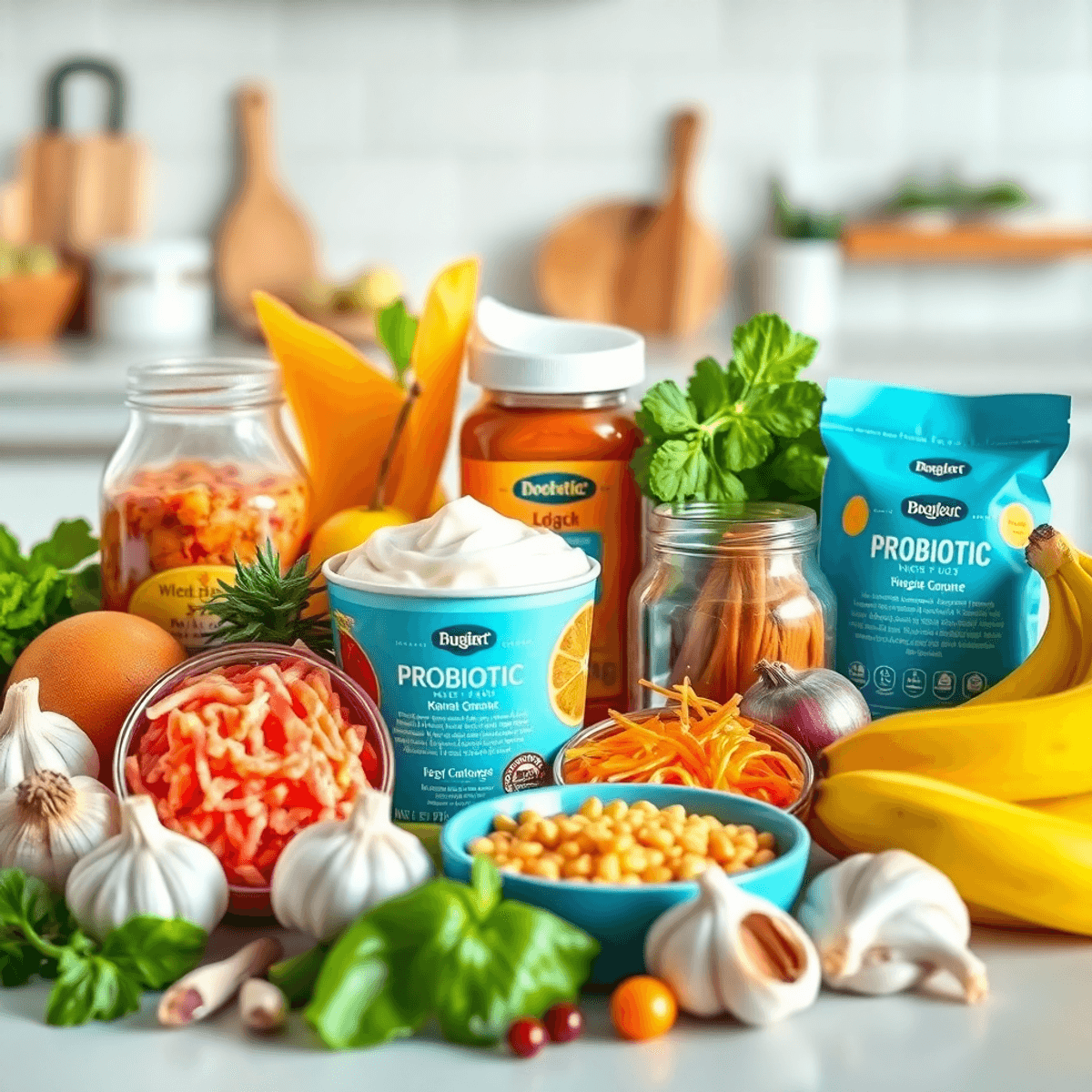Best Herbs for Gut Health: What Experts Recommend
In recent years, gut health has emerged as a focal point in the quest for overall well-being. With a growing body of research linking a healthy gut to improved immunity, mental health, and even weight management, it’s no wonder that many are turning to natural solutions like herbs to optimize their digestive health. In this comprehensive guide, we explore the best herbs for gut health recommended by experts, ensuring you have the knowledge to support your digestive system naturally.
Understanding Gut Health: The Basics
The gut, often referred to as the second brain, plays a crucial role in our health. It is home to trillions of bacteria, fungi, and other microbes that aid in digestion, nutrient absorption, and immune function. When the gut is out of balance, it can lead to a range of issues, from bloating and indigestion to more severe conditions like irritable bowel syndrome (IBS).
The Role of Herbs in Gut Health
Herbs have been used for centuries to support digestive health. They offer a natural and effective way to balance the gut microbiome, reduce inflammation, and promote overall digestive wellness. Here, we delve into the top herbs recommended by experts for maintaining and improving gut health.
1. Ginger: The Digestive Powerhouse
Ginger is celebrated for its potent anti-inflammatory and antioxidant properties. It aids digestion by stimulating saliva, bile, and gastric enzymes, making it an excellent remedy for nausea and indigestion.
According to a study published in the Journal of the Medical Association of Thailand, ginger can significantly reduce symptoms of nausea and improve gastric motility. Incorporating ginger into your diet can be as simple as sipping on ginger tea or adding fresh ginger to your meals.
2. Peppermint: The Soothing Herb
Peppermint is renowned for its ability to soothe the digestive tract. It relaxes the muscles of the gastrointestinal tract, helping to relieve symptoms of IBS and bloating.
Research in the Journal of Clinical Gastroenterology found that peppermint oil can reduce the severity of IBS symptoms by up to 50%. Consider using peppermint oil capsules or consuming peppermint tea to harness its gut-soothing benefits.
3. Turmeric: The Anti-Inflammatory Champion
Turmeric, with its active compound curcumin, offers powerful anti-inflammatory effects. It supports gut health by reducing inflammation and oxidative stress, which are linked to gastrointestinal disorders.
A study in the World Journal of Gastroenterology highlights turmeric’s potential in managing digestive conditions. To incorporate turmeric into your diet, try adding it to curries, smoothies, or golden milk.
4. Fennel: The Bloating Buster
Fennel seeds are traditionally used to ease bloating and gas. They have carminative properties, which help to expel gas and reduce bloating.
Incorporating fennel tea after meals can facilitate digestion and alleviate discomfort. Studies have shown that fennel can improve digestive efficiency and relieve bloating symptoms effectively.
5. Chamomile: The Gentle Healer
Chamomile is widely known for its calming effects, but it also offers digestive benefits. It helps soothe the stomach lining and reduce inflammation.
The Journal of Ethnopharmacology supports chamomile’s efficacy in treating gastrointestinal disorders. Drinking chamomile tea can also help reduce stress, which is often linked to digestive issues.
6. Licorice Root: The Gut Protector
Licorice root has been used to treat various digestive issues due to its soothing and anti-inflammatory properties. It helps protect the stomach lining from irritants.
Studies indicate that licorice root can aid in healing ulcers and reducing acid reflux. DGL (deglycyrrhizinated licorice) supplements are a popular form for those seeking gut relief without affecting blood pressure.
7. Dandelion: The Detoxifying Herb
Dandelion aids digestion by stimulating the liver and promoting bile production, which is essential for fat digestion and toxin elimination.
The Journal of Medicinal Food suggests that dandelion has prebiotic properties, supporting beneficial gut bacteria. Dandelion tea or greens can be included in salads to enhance digestive health.
8. Aloe Vera: The Natural Soother
Aloe vera is known for its soothing properties, making it a natural choice for relieving constipation and promoting healthy digestion.
Research published in the Journal of Research in Medical Sciences highlights aloe vera’s effectiveness in improving IBS symptoms. Aloe vera juice can be consumed for its gut-healing benefits, but moderation is key due to its laxative effects.
9. Slippery Elm: The Mucilage Marvel
Slippery elm contains mucilage, a gel-like substance that coats and soothes the digestive tract, making it effective for conditions like heartburn and GERD.
The Journal of Alternative and Complementary Medicine provides evidence for slippery elm’s ability to manage digestive discomfort. It can be taken in powder form mixed with water or as a supplement for best results.
10. Marshmallow Root: The Gut Protector
Similar to slippery elm, marshmallow root contains mucilage, which helps protect the stomach lining and reduce inflammation.
Studies suggest that marshmallow root can alleviate symptoms of gastritis and ulcers. It is often consumed as a tea or in capsule form to support gut health.
Actionable Tips for Incorporating Herbs into Your Diet
Incorporating these herbs into your daily routine can be simple and enjoyable. Here are some actionable tips to get started:
1. Herbal Teas: Opt for herbal teas like ginger, peppermint, or chamomile to enjoy their gut-boosting benefits.
2. Cooking with Herbs: Add fresh or dried herbs such as turmeric and ginger to your meals for an easy and tasty way to enhance digestion.
3. Supplements: Consider taking supplements like peppermint oil capsules or DGL licorice for targeted gut support.
4. Smoothies: Blend herbs like aloe vera gel or turmeric into your smoothies for a nutrient-packed boost.
Conclusion: Embrace the Power of Herbs for Gut Health
The journey towards optimal gut health can be both rewarding and transformative. By incorporating these expert-recommended herbs into your daily routine, you can naturally support your digestive system and experience improved overall health. Remember, while herbs offer numerous benefits, it’s important to consult with a healthcare professional before making significant changes to your diet, especially if you have underlying health conditions or are taking medications.
Nurture your gut, and you’ll be on your way to a healthier, happier you!
Discover more from NatureZen Market
Subscribe to get the latest posts sent to your email.











